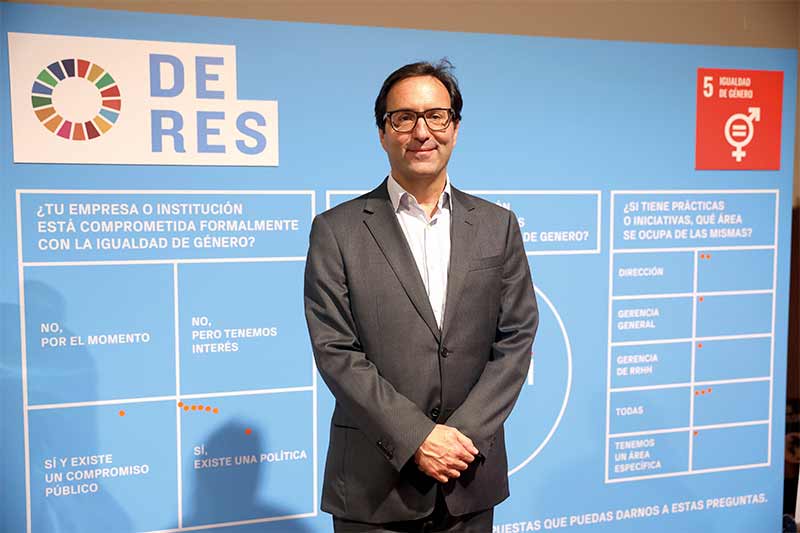CAF Boosts MSMEs with Institutional and Financial Support
CAF representative in Uruguay François Borit presented at the annual DERES Conference the actions that the development bank is taking in the region to help create a sustainable business ecosystem.
Creating an ecosystem that provides the tools for micro, small and medium-sized enterprises (MSMEs) to become stronger and become self-sufficient in the long term should be one of the main objectives that public development policy makers, multilateral agencies and the financial system as a whole have to face on as a sustainable development challenge, said François Borit, CAF representative in Uruguay, in the forum “For a Sustainable Uruguay: Where Are We Going?” organized by DERES, a civil institution made up of more than 100 firms that aims to discuss specific areas to promote Corporate Social Responsibility in Uruguay.
Borit noted that considering MSMEs as smaller versions of large companies is a common mistake. “Thus, we need to create tools that fit their needs rather than replicate models applied at other scales.” To this end, he added, we have to tear down the barriers for access to financing for MSMEs, limitations of financial institutions due to the small size of the market, high informality rates or a shortage of risk management instruments, among others. Thus, we expect that such companies will no longer be forced to resort to personal, higher-cost, lower-term loans.
In this regard, participants valued the opportunity offered to Uruguay during the coronavirus pandemic to strengthen a key instrument for that purpose, i.e. the National Guarantee System (SiGa). “Uruguay went from nearly 2,000 guarantees issued in 2019 to nearly 16,000 issued in favor of MSMEs. This is brilliant, and it shows that this instrument works and makes economies sustainable.”
“Guarantee and sustainability systems are a necessary tool as they underpin MSMEs in their growth stage and all the way up to the consolidation stage. In addition, they are countercyclical support tools, which are working very well at the moment,” the local CAF representative argued.
The event featured the director of the Debt Management Unit at the Ministry of Economy and Finance, Herman Kamil, Inter-American Development Bank’s Matías Benderksy, Stefan Liller of UNDP, Alberto Charro of BBVA, and Sebastián Mauri of HSBC.
Kamil emphasized that the world of finance is undergoing a “paradigm shift” and investors are no longer guided only by asset performance. Investors are currently favoring financial instruments issued by governments, sectors or companies pursuing environmental and social impact policies.
“The pandemic caused a shift in the way investors, workers and the general public view the role of companies in society,” Kamil said. That is why Uruguay is already incorporating ESG (environmental, social and governance) factors into its debt management to capitalize on that opportunity, which has an impact not only on reducing sovereign risk premiums but also on improving the nation’s credit rating. “Uruguay is very well positioned to capitalize on and seize this opportunity, and to do so for sustainable purposes.”
The DERES conference addressed the different issues involving actions of companies and government agencies to achieve sustainable development.
CAF's more recent content

CAF, ECLAC, IDB and PAHO Promote Sustainable Development in the G20
The Regional Organizations of the Americas congratulate Brazil on its successful G20 Presidency, highlighting its leadership on key issues such as poverty, governance, and climate change. They also reaffirm their commitment to actions that promote equity and development in the region.
Urgent Call for Action to Safeguard Caribbean SIDS at CAF Symposium
As the global community grapples with the escalating climate crisis, Caribbean Small Island Developing States (SIDS) are running out of time to secure critical investments and support needed to strengthen their economies and protect vulnerable communities from the intensifying impacts of climate change. With the window to take decisive action rapidly shrinking, CAF - Development Bank of Latin America and the Caribbean, in partnership with the Commonwealth Secretariat and the Antigua and Barbuda High Commission, brought together key stakeholders for a symposium in London to address the critical vulnerabilities Caribbean SIDS face.

